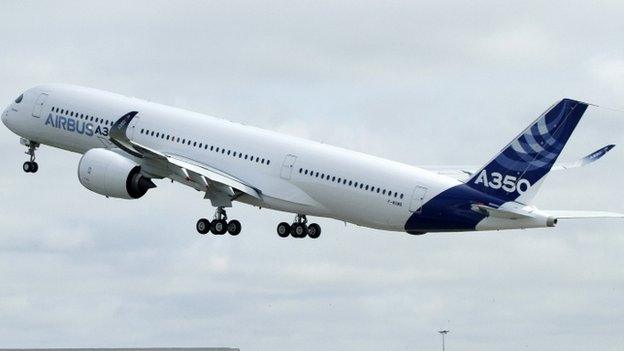Heathrow and the politics of airport expansion
- Published
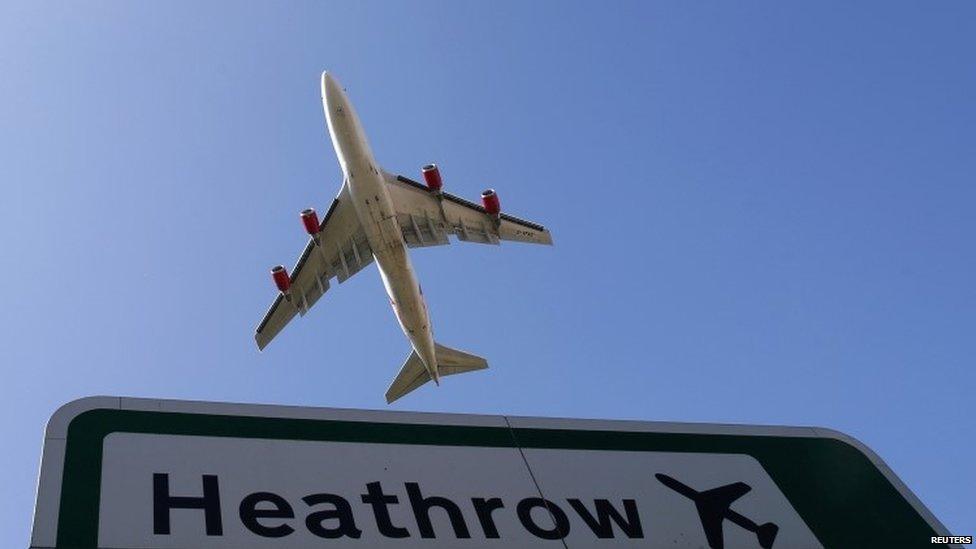
The long battle over Heathrow expansion has taken a new twist after the government said a final decision on whether to build a new runway would not be made until at least next summer.
The government was expected to decide one way or another before the end of the year but has now said further environmental assessments need to be carried out.
When it is made, the decision will have huge implications for local residents, airport workers, the millions of passengers who use Heathrow every year and for British businesses up and down the country.
But the political repercussions will be equally significant, with the outcome to what has become a toxic issue for the Conservatives likely to have a bearing on the fortunes of the government and the race to succeed David Cameron as prime minister.

The background to the decision
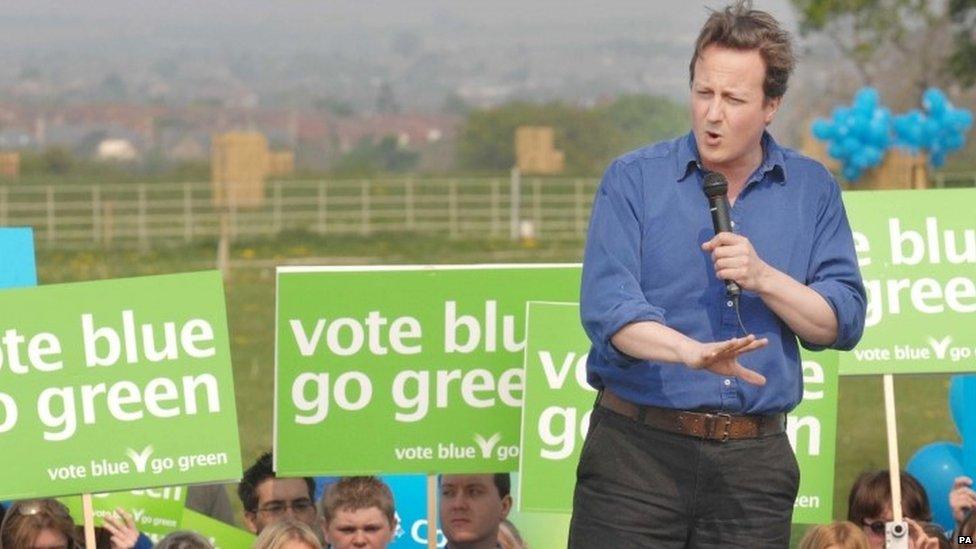
The no runway pledge was an early assertion of David Cameron's environmental credentials
At its 2008 party conference, the Conservatives ruled out any decision on expanding Heathrow during the lifetime of the next Parliament, effectively putting the airport - which has long wanted to grow - into a holding pattern for five years.
While traditionally a pro-business party, the decision reflected the concerns of senior Conservatives such as Boris Johnson - then recently elected Mayor of London - about the impact of expansion and the wider mood music at the time within the Tories about the importance of environmental protection to their modernising credentials. Remember David Cameron's pre-election mantra of "vote blue, go green".
Finding themselves in government with the Lib Dems - who themselves were opposed to a third runway and had a veto on major decisions - there was no question of the Conservatives trying to wriggle out of their pledge.
However, amid reports of growing sympathy among senior figures towards the arguments behind a third runway, David Cameron announced in 2012 that an independent commission would consider the future of Heathrow as part of wider review of airport capacity in the south-east of England.
The review, chaired by Sir Howard Davies, was asked to weigh up the case for enlarging Heathrow, Gatwick and Stansted as well as the option of a brand new airport in the Thames Estuary, long proposed by Boris Johnson. But crucially, it would not report until after the 2015 election.

The choice to be made
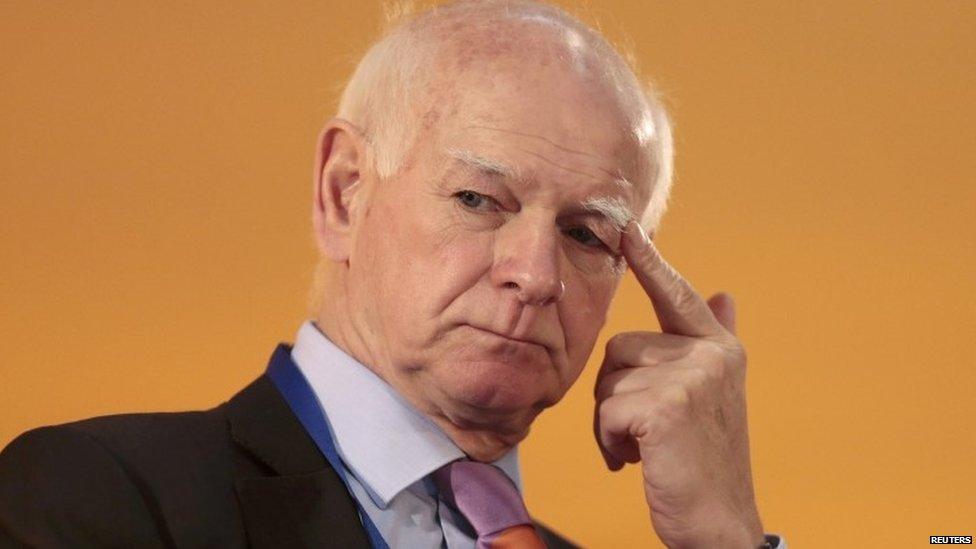
Now that the Airports Commission led by Sir Howard Davies has reported, business has urged no further stalling
After initially ruling out the Stansted and Thames Estuary options, the Davies Commission delivered its verdict in July, external.
It concluded that while extending one of Heathrow's existing runways and building a new runway at Gatwick were credible options, a new runway at Heathrow would provide the greater strategic and economic benefits, as long as it was accompanied by a "significant package" of measures to address its impact on the environment and the local community.
Under strong pressure from business to reach a quick decision, David Cameron said in July that the government would make its intentions clear before the end of the year.
Other than that, he has tried to say as little about the matter as possible, citing the risk of even a hint of a personal preference prejudicing the final outcome and increasing the chance of the decision being subject to legal challenge.
Ministers have been considering the issue for several months, having formed a special cabinet sub-committee in which to discuss it, and any further delay - on whatever grounds - will frustrate those in favour of a new runway.
Having promised a "clear direction" before the end of the year, the government then announced, external in December that the "complex and challenging decision" would stretch to at least the summer.

The key players and where they stand
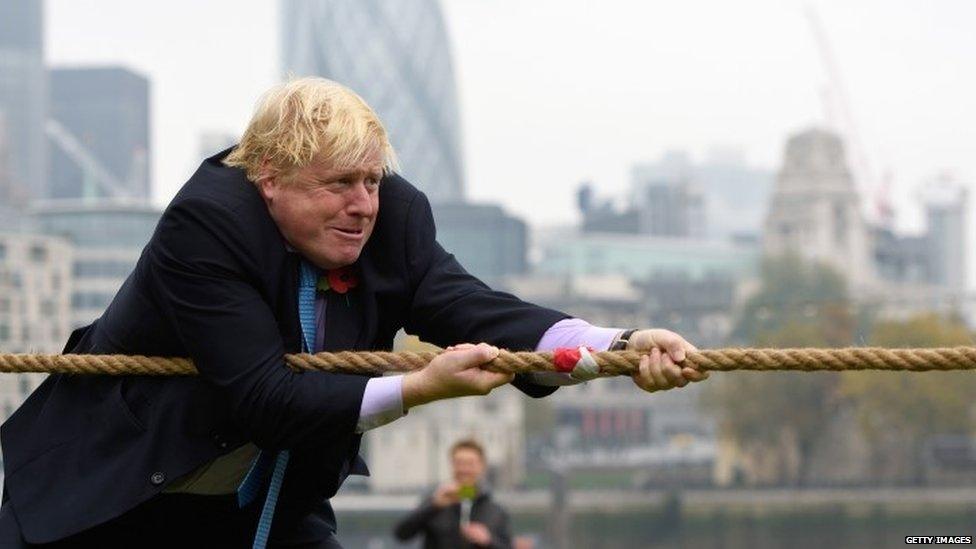
Boris Johnson has trenchant views on the issue but other politicians have been less clear on where they stand
Ask most voters where David Cameron and his key allies, notably Chancellor George Osborne, stand on the issue and they would probably be scratching their heads. The two men have remained pretty gnomic, in public at least, about the question.
However, behind the scenes, it is widely accepted that the chancellor has been leading the argument for a bigger Heathrow. This is a chancellor who has made big play of his vision for an infrastructure revolution and has championed big, transformative transport projects such as Crossrail and HS2.
He is also a chancellor who has, again and again, emphasised the importance of Britain's trade links, its export markets and the vital role that China, in particular, will play in the UK's economic future. All this smacks of a man minded to back Heathrow expansion if the right conditions are met.
But Mr Osborne is also a consummate political strategist and, at the moment, the man tipped to succeed David Cameron when he steps down as leader before the 2020 election. He is unlikely to want to do anything to jeopardise that.
And that is where it gets really interesting. While other potential leaders, such as Sajid Javid, are pro-Heathrow, Mr Osborne's most likely rivals are much more lukewarm - in the case of Home Secretary Theresa May - and in the case of Boris Johnson downright opposed.
The Mayor of London and Uxbridge and South Ruislip MP is looking for an issue to galvanise support for him within the party. Could this be it?
There are plenty of other political factors for Mr Cameron and Mr Osborne to bear in mind. There is the possibility, albeit a small one, of Cabinet resignations over the issue. International Development Secretary Justine Greening, whose Putney constituency in under the Heathrow flight path, has been a longstanding opponent of Heathrow expansion. Could she remain in a cabinet which approves a new runway?
Then there are the dozens of Tory MPs in Kent who are opposed to expanding Gatwick and could be vulnerable to a challenge from UKIP or even anti-expansion independent candidates at the next election.

The battle for London in 2016
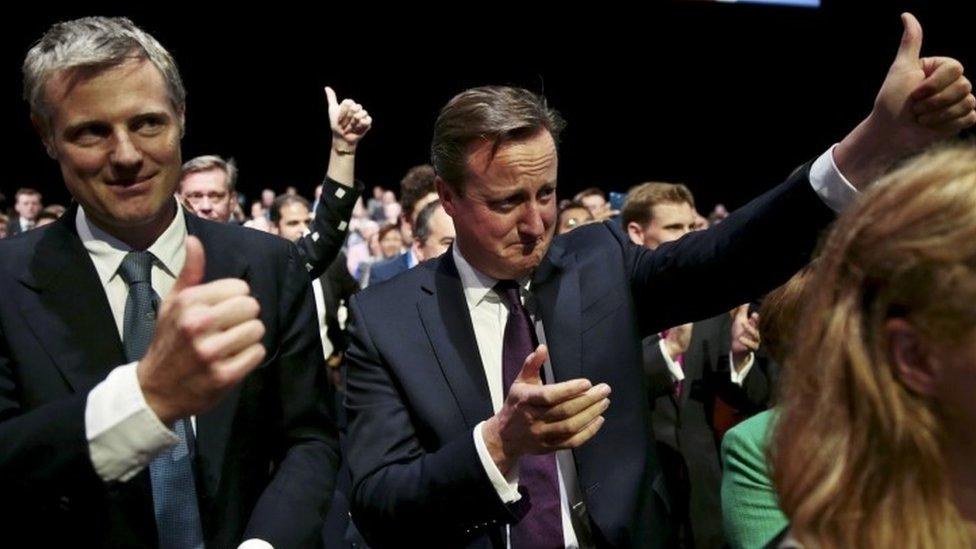
Anti-Heathrow campaigner Zac Goldsmith is the Conservatives' standard bearer in London next year
An already difficult situation for the government is compounded by the rich political dynamics in London.
Boris Johnson may be standing down as London Mayor next year but the Conservative candidate to succeed him, Zac Goldsmith, is just as adamantly opposed to Heathrow expansion. Furthermore, he has pledged to stand down as Conservative MP for Richmond Park and trigger a by-election if the airport gets the green light for a new runway.
Even without the difficulties this would cause for Goldsmith's mayoral bid, this is something that the prime minister, who has a slender majority in the Commons anyway, would like to avoid if at all possible.
The Conservatives want to keep hold of City Hall and would be wary of doing anything to undermine Mr Goldsmith, whose chief opponent - Labour's Sadiq Khan - is also opposed to a new runway.
Nevertheless, ministers have insisted that this is a decision that affects the whole of the UK and will be decided with the interests of the entire UK - including Scotland, Wales and Northern Ireland - in mind.

Another dilemma for Labour
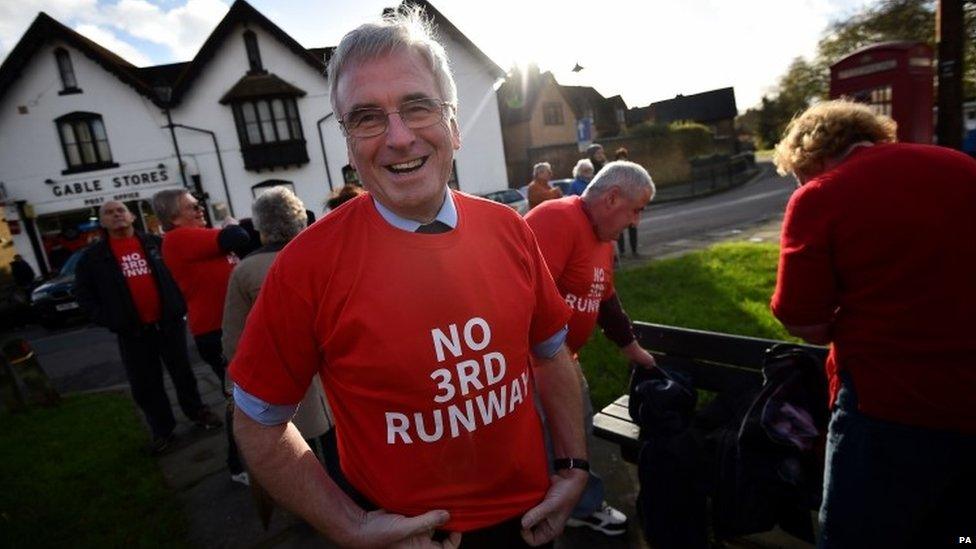
Labour's shadow chancellor John McDonnell is adamantly opposed to a new runway, once being ejected from the Commons over the issue
It is not just the Tories who are divided over the issue. Labour has performed its own contortions in the past decade, having originally backed a third runway under Tony Blair and then Gordon Brown.
During Ed Miliband's leadership, its support became much more lukewarm but its inclination was still to support the Davies' recommendations if they could reasonably be implemented.
Now under Jeremy Corbyn the party looks to have backed away from this, saying it wants to "look at all the evidence".
There are MPs who believe that backing Heathrow would be a much-needed boost to its somewhat tarnished business credentials while Unite, its largest financial backer, and other unions are supportive - citing the boost to employment and skills it would provide.
But shadow chancellor John McDonnell, a key ally of Mr Corbyn's, is a vehement critic of Heathrow expansion. In his capacity as MP for the neighbouring Hayes and Harlington constituency, he was once thrown out of the Commons for protesting about the issue.

It'll be a long haul
Whatever decision is reached, today's decision-makers and future leaders will have to live with the consequences for a long time. If approved, a new runway at Heathrow is unlikely to be operational until between 2025 and 2029. That's at least two general elections - and at least one new prime ministers away.
- Published1 July 2015
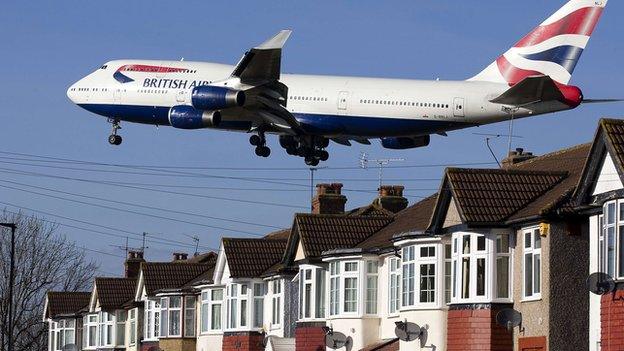
- Published6 October 2015
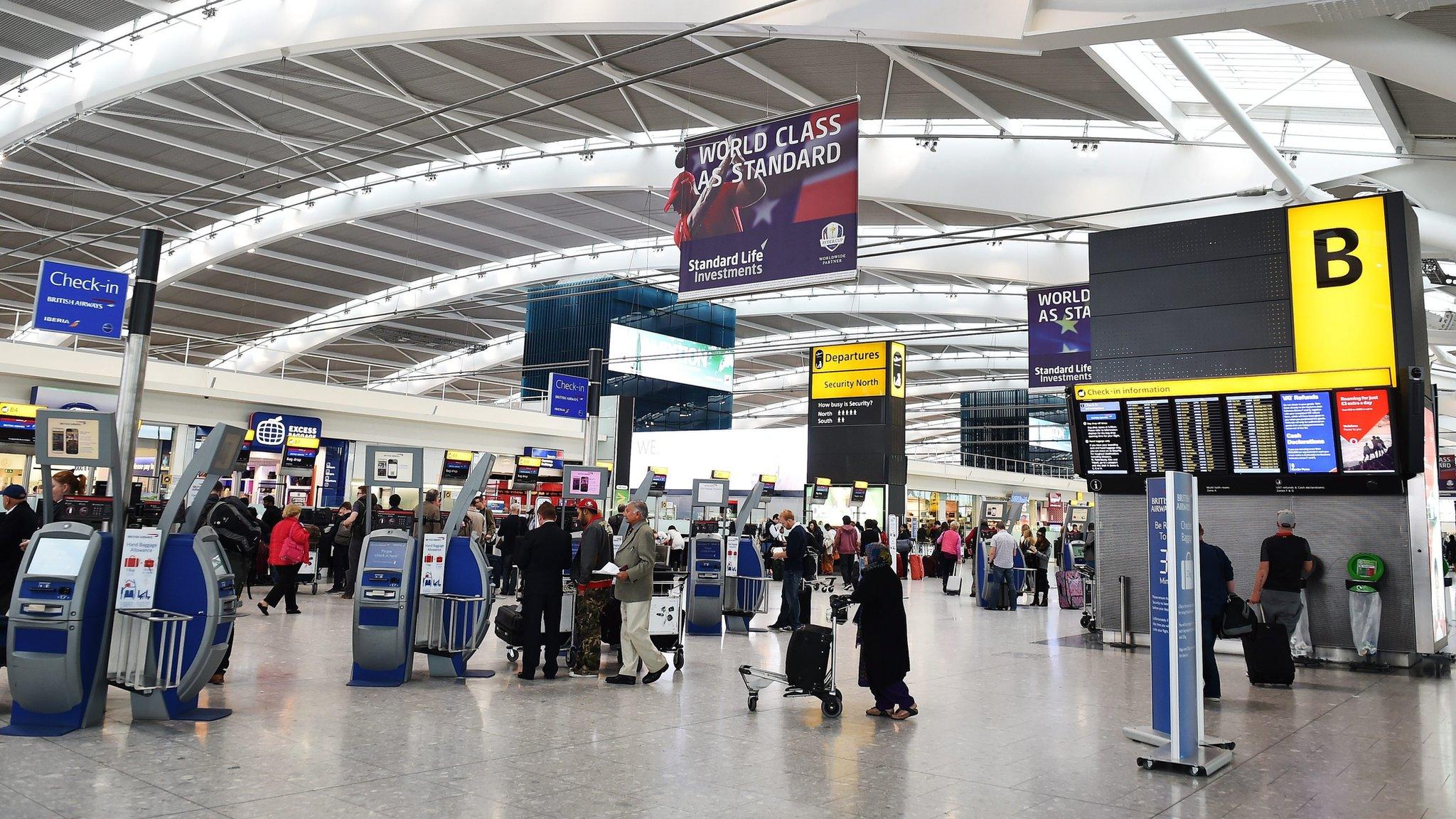
- Published7 December 2015
- Published11 June 2015
